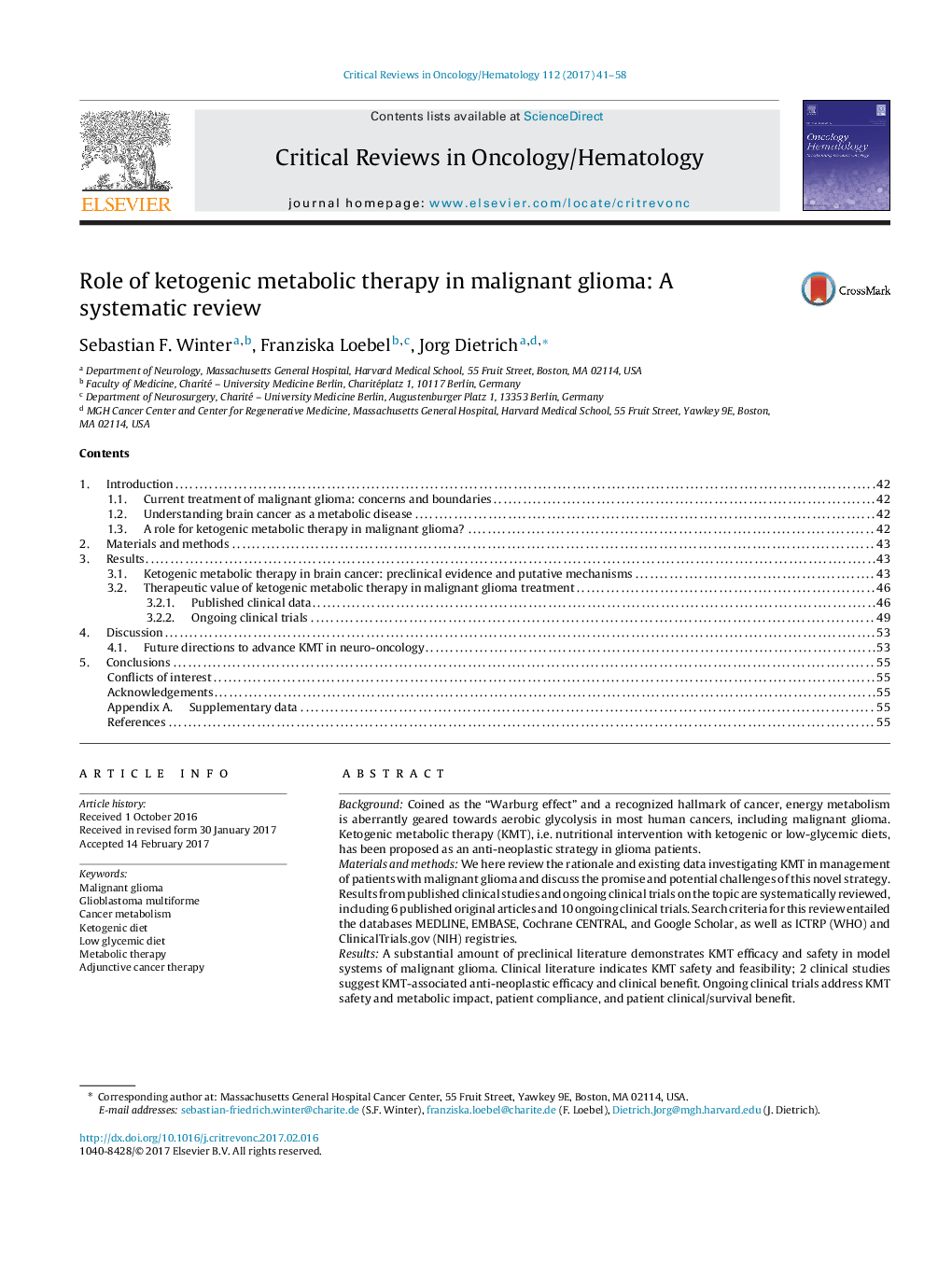| کد مقاله | کد نشریه | سال انتشار | مقاله انگلیسی | نسخه تمام متن |
|---|---|---|---|---|
| 5664135 | 1590705 | 2017 | 18 صفحه PDF | دانلود رایگان |
- Ketogenic metabolic therapy (KMT) is discussed as a potential glioma treatment option.
- KMT is safe and exerts anti-neoplastic efficacy in malignant glioma animal models.
- Early clinical evidence points to KMT safety and possible benefit in brain cancer patients.
- 10 active clinical trials assess KMT safety, optimal regimen and therapeutic benefit.
- Methodological and ethical challenges in KMT clinical research need to be resolved.
BackgroundCoined as the “Warburg effect” and a recognized hallmark of cancer, energy metabolism is aberrantly geared towards aerobic glycolysis in most human cancers, including malignant glioma. Ketogenic metabolic therapy (KMT), i.e. nutritional intervention with ketogenic or low-glycemic diets, has been proposed as an anti-neoplastic strategy in glioma patients.Materials and methodsWe here review the rationale and existing data investigating KMT in management of patients with malignant glioma and discuss the promise and potential challenges of this novel strategy. Results from published clinical studies and ongoing clinical trials on the topic are systematically reviewed, including 6 published original articles and 10 ongoing clinical trials. Search criteria for this review entailed the databases MEDLINE, EMBASE, Cochrane CENTRAL, and Google Scholar, as well as ICTRP (WHO) and ClinicalTrials.gov (NIH) registries.ResultsA substantial amount of preclinical literature demonstrates KMT efficacy and safety in model systems of malignant glioma. Clinical literature indicates KMT safety and feasibility; 2 clinical studies suggest KMT-associated anti-neoplastic efficacy and clinical benefit. Ongoing clinical trials address KMT safety and metabolic impact, patient compliance, and patient clinical/survival benefit.ConclusionsWhile clinical evidence is still limited in this evolving field, increasing numbers of ongoing clinical trials suggest that KMT is emerging as a potential therapeutic option and might be combinable with existing anti-neoplastic treatments for malignant glioma. Emerging clinical data will help answer questions concerning safety and efficacy of KMT, and are aiming to identify the most promising KMT regimen, compatibility with other anti-cancer treatments, ethical aspects, and impact on quality of life of cancer patients.
Journal: Critical Reviews in Oncology/Hematology - Volume 112, April 2017, Pages 41-58
